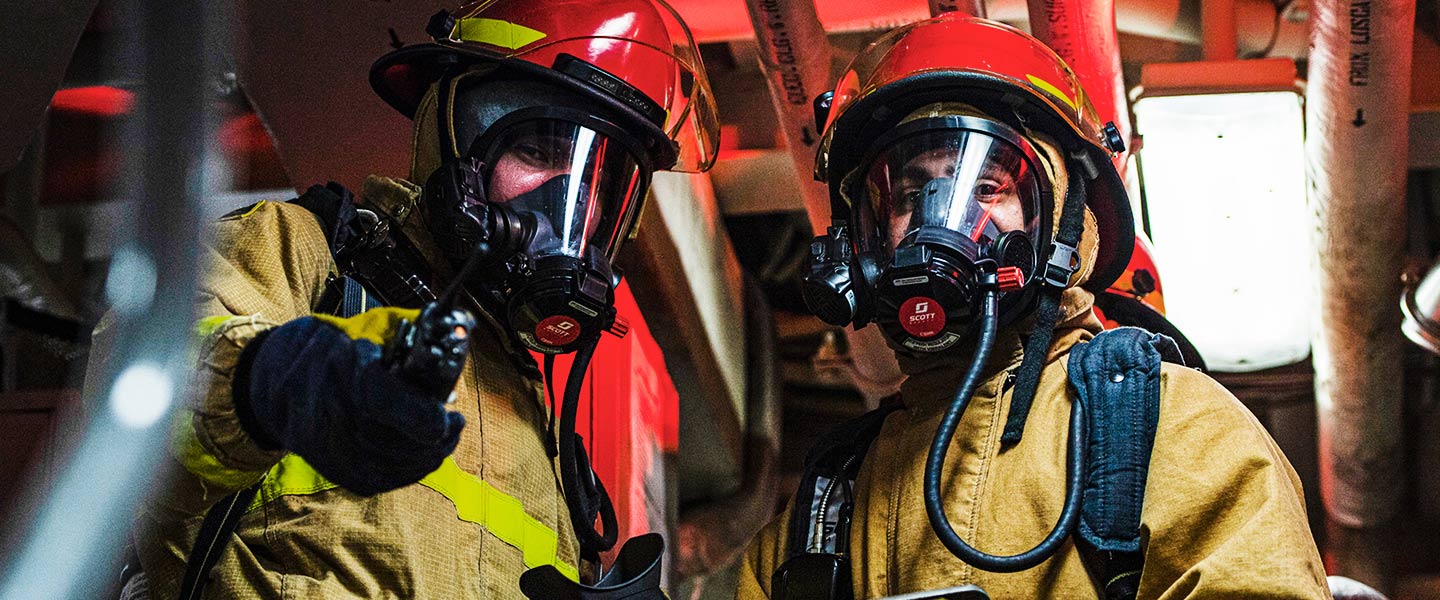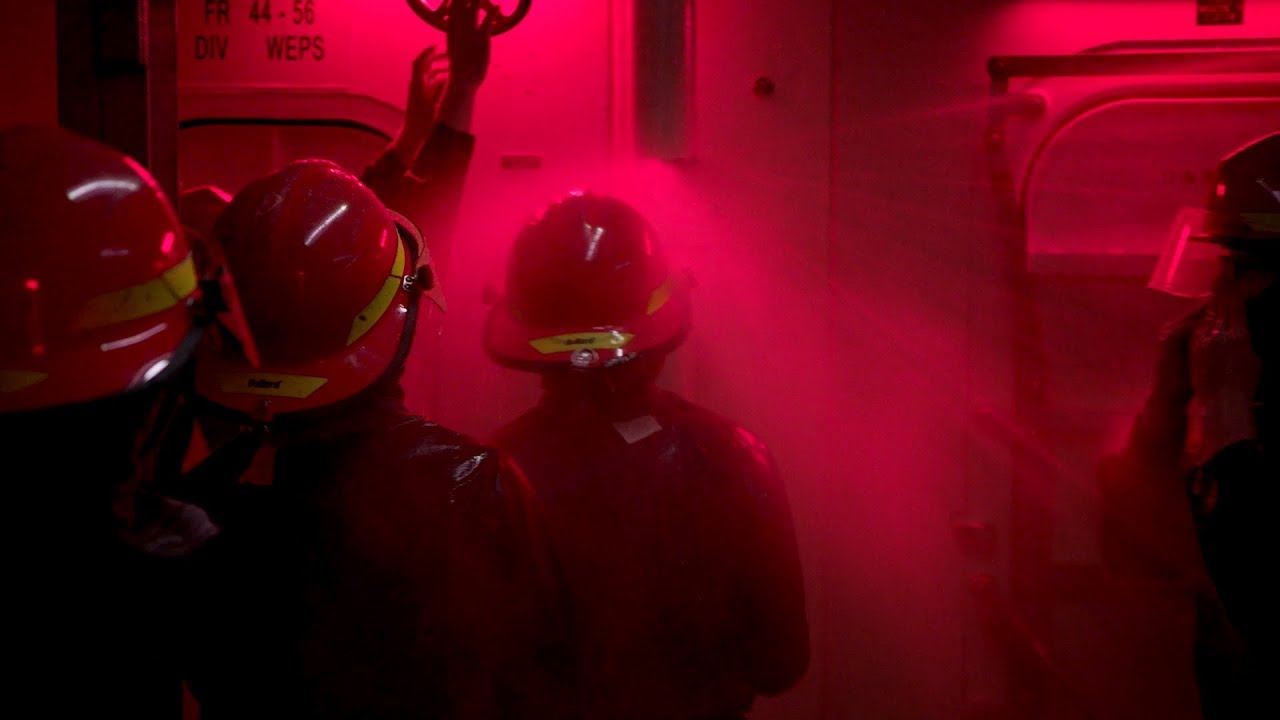What to Expect
More Information
Responsibilities
When it comes to preventing or containing hazardous situations, Damage Controlmen are the first on the scene. Depending on the specialty, their responsibilities may include:
- Firefighting
- Emergency equipment repair
- Onboard damage control
- Fire suppression equipment inspections and maintenance
- Ongoing safety and damage control training to crewmembers
Work Environment
Where there are servicemembers, there is a need for Damage Controlmen onboard all classes of ships and submarines, as part of an air squadron or virtually anywhere around the globe. The work is challenging, but is typically alongside a close-knit, well-trained team.
Training & Advancement
Upon completion of initial Recruit Training (known as Boot Camp), those pursuing a Damage Controlman role report to Basic Engineering Common Core and “A” School in Great Lakes, IL, where they receive 10 weeks of formal Navy technical training. Here, they develop a working knowledge of firefighting systems and equipment, shipboard damage control, ventilation systems, ship stability, drainage systems, communication, emergency breathing devices and de-smoking and gas analyzing equipment.
Promotion opportunities are regularly available but competitive and based on performance. It’s also important to note that specialized training received and work experience gained in the course of service can lead to valuable credentialing and occupational opportunities in related fields in the civilian sector.
Education Opportunities
Beyond offering access to professional credentials and certifications, Navy technical and operational training for a Damage Controlman can translate to credit hours toward a bachelor’s or associate degree through the American Council on Education.
You may also continue your education through undergraduate degree opportunities like the Navy College Program and Tuition Assistance and the Post-9/11 GI Bill.
Qualifications & Requirements
A high-school diploma or equivalent is required to become an Enlisted Sailor and Damage Controlman in the Navy. Those seeking this role must have good vision and normal color perception. They should feel comfortable in front of small groups. Prior experience in leading others is a valuable asset. Citizenship requirements may vary.
General qualifications may vary depending upon whether you’re currently serving, whether you’ve served before or whether you’ve never served before.
Part-Time Opportunities
There are part-time opportunities available as a Damage Controlman.
Serving part-time as a Navy Reserve Sailor, your duties will be carried out during your scheduled drilling and training periods. During monthly drilling, Damage Controlmen in the Navy Reserve typically work at a location close to their homes.
For annual training, Damage Controlmen may serve anywhere in the world, whether on a ship at sea or at bases and installations on shore.
Take a moment to learn more about the general roles and responsibilities of Navy Reserve Sailors.
Most of what you do in the Navy Reserve is considered training. The basic Navy Reserve commitment involves training a minimum of one weekend a month (referred to as drilling) and two weeks a year (referred to as Annual Training) – or the equivalent of that.
Damage Controlmen in the Navy Reserve serve in an Enlisted role. Before receiving the ongoing professional training that comes with the job, initial training requirements must be met.
For current or former military Enlisted servicemembers: prior experience satisfies the initial Recruit Training requirement – so you will not need to go through Boot Camp again.
For those without prior military experience: you will need to meet the initial Recruit Training requirement by attending Boot Camp in Great Lakes, IL. This training course will prepare you for service in the Navy Reserve and count as your first Annual Training.
































































































































